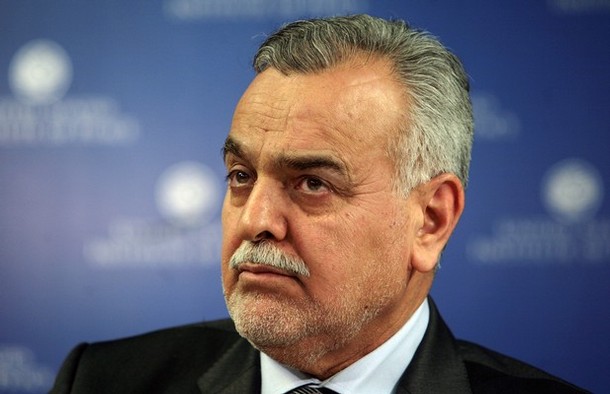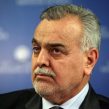
Turkey Considers Building Two Military Bases in Iraq to Counter the PKK
Publication: Eurasia Daily Monitor Volume: 6 Issue: 73
By:

Turkey’s Chief of the General Staff, General Ilker Basbug, delivered a speech at the War Academies Command in Istanbul on April 14, addressing key issues including civil-military relations, national identity, the role of religion, and the fight against terrorism (EDM, April 15). The most surprising part of the speech was his progressive approach toward Turkey’s Kurdish question. He redefined Turkey’s long term exclusionist and nationalist outlook by referring to the founder of the modern Turkish state Mustafa Kemal Ataturk: "Turkey was founded by the peoples of Turkey, who are called the Turkish nation." He explained his reasons for selecting this lesser known quote: "Ataturk is not saying Turkey is founded by Turks but peoples of Turkey" (NTV, April 14). In addition, Basbug also stated that "terrorists are human too, we should find a way to reach out to their families…the state should consider finding new ways to bring the Kurdistan Workers’ Party (PKK) militants home by changing its existing legislation" (www.tsk.mil.tr, April 14).
Turkish commentators welcomed this new inclusive approach towards recognizing Kurdish identity as a separate group -though he avoided using the term "ethnic." Furthermore, his progressive attitude towards the necessity of an amnesty plan for PKK members in the mountains to return home, might facilitate the government’s efforts to adopt positive policies on the Kurdish question (Milliyet, April 16).
The Turkish press reported that General Basbug’s request for amnesty legislation is part of an existing plan first outlined during the last National Security Council meeting in March. According to this plan, the government wants to target the PKK’s training camps in northern Iraq and then implement a new amnesty law (Aksam, April 16).
One possible element in this planning might be linked to the Turkish police operation on April 14, which detained around 40 suspected members of the pro-Kurdish Democratic Society Party (DTP). During the operation 27 addresses were raided by the police, including the homes of leading members of the DTP and the private Kurdish Gun TV channel in Diyarbakir. Among those taken into custody were: DTP former vice-chairman Selma Irmak, DTP vice-chairmen Kamuran Yuksek, Bayram Altun, Selma Irmak and the PKK leader Abdullah Ocalan’s lawyers Seracettin Irmak, Ebru Gunay and Sinasi Tur, and the Batman municipality building director Heval Erdemli (www.bianet.org, April 14). The Turkish press also reported that the operation aimed at severing the ties between the imprisoned PKK leader Abdullah Ocalan with the DTP and the PKK (Milliyet, April 16).
Responding to the operation, the DTP accused the ruling Justice and Development Party (AKP) of taking revenge over the recent local elections, in which the it inflicted a heavy defeat on the AKP -its only rival in the Kurdish region. One DTP Member of Parliament stated that the AKP had not been able to accept the local election results and was attacking the will of the Kurdish people (www.bianet.org, April 15).
In response the DTP and PKK launched a counter offensive strategy against these arrests. The mayor of Diyarbakir joined a demonstration in Diyarbakir where close to 10,000 people called on the prosecutors to release the detainees (24 TV, April 14, Yeni Safak, April 16). On the other hand, the PKK has attacked the military on April 15 and 16 and killed one soldier and wounded four others (Yeni Safak, Sabah, April 16).
In conjunction with these developments, Iraqi Vice President Tarik el-Hasimi released a surprising statement saying: "we either should stop the PKK’s activities on Iraqi territory or we should allow Turkey to set up a temporary military base on Iraqi territory to let them do the job of cleansing the PKK militants from the Iraqi mountains" (Haberturk, April 16).
Interestingly, the pro-PKK news agency ANF reported earlier this month that Turkey has been preparing to build two military bases in Iraq: one in Diana, northern Iraq situated close to the PKK’s strategically important camps of Hakurke and Hinere and another close to Ranya near the PKK’s main camp in the Kandil Mountain (ANF News Agency, April 7).
Similarly, Kurdish leaders within northern Iraq have been preparing to organize a Kurdish conference in May calling for the PKK to end its campaign of violence. The PKK and the DTP has opposed the conference because they believe it aims to exclude the PKK from Kurdish politics (Taraf, April 14).
All these developments suggest this might be a critical year for Turkey’s fight against the PKK. Despite the fact that Turkey has already successfully established an international coalition against the PKK and gained the support of the United States, the EU, Iran, Iraq, and even the Iraqi Kurdish Regional Government, military solutions have proven ineffective. Turkey not only needs a comprehensive and internationally acceptable plan but crucially it requires support from its Kurdish minority, in order to deny the PKK’s continued grassroots platform.




